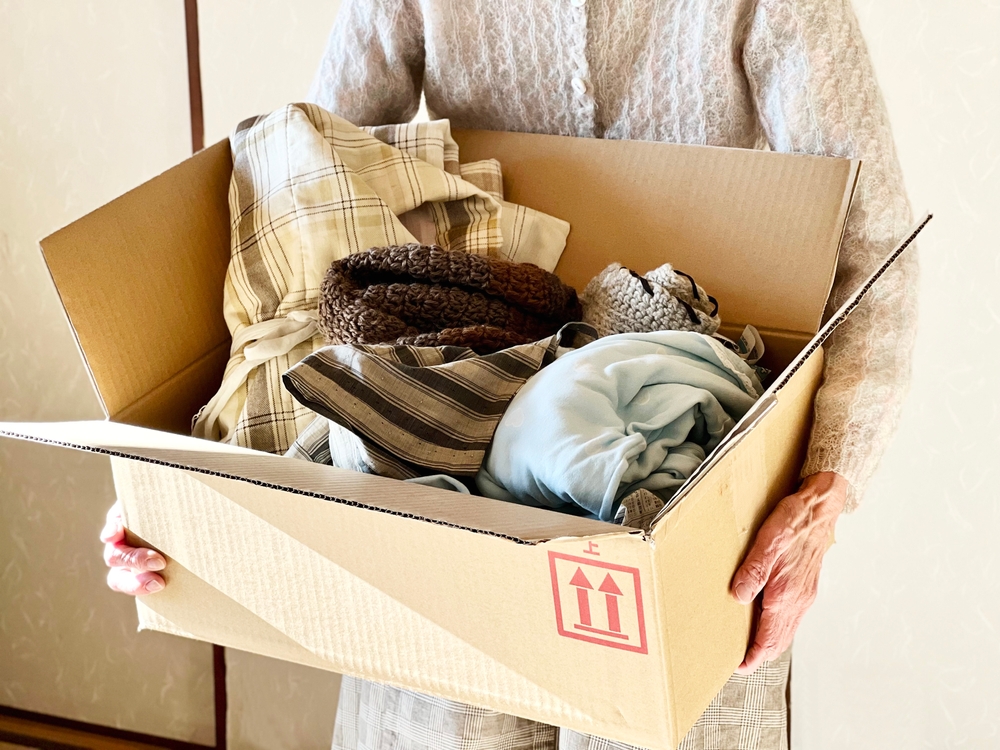Most people have a stash of things they keep “just in case.” It could be a drawer of tangled chargers, a bin full of half-used toiletries, or a closet crammed with outdated clothing. At first glance, it may seem practical to hold onto these items. After all, what if you need them one day? But this habit often creates hidden clutter and adds stress to your home life. Holding onto things for future possibilities can prevent you from living comfortably in the present. These 10 everyday items are commonly kept “just in case” but rarely end up being used. Letting go of them can make your space cleaner, lighter, and more functional.
Expired Medications

Expired medications are among the most dangerous things people keep around. Once the expiration date has passed, the drug may no longer work as intended. Some medications can also chemically change over time, making them less effective or even harmful. People often keep painkillers, antibiotics, or allergy pills “just in case” they get sick again. But treating new symptoms with old medication is not a safe or reliable solution. Instead of saving these items, dispose of them properly at a take-back location. Avoid flushing them or throwing them in the trash unless the packaging explicitly says it is safe to do so. Holding onto expired pills does more harm than good.
Old Electronics and Cables
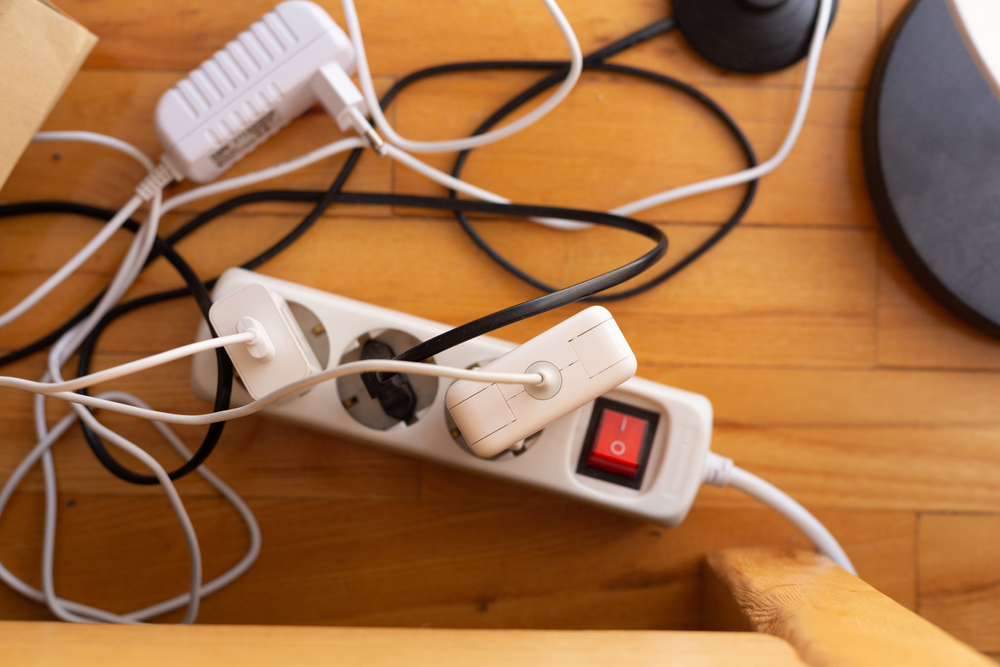
If you have a box of random cords and old electronics, you are not alone. Many people keep outdated phones, remotes, chargers, and other tech accessories “just in case” they find a use for them. But outdated devices quickly lose compatibility with newer models. That cord you are saving might not fit anything you own anymore. Tangled cords and unused devices also take up space and collect dust. Electronic clutter makes it harder to find the devices and tools you actually use. Recycle these items at an e-waste center or donate usable electronics to a tech refurbishing program. Letting go of these pieces will streamline your space and reduce visual noise.
Unworn Clothing
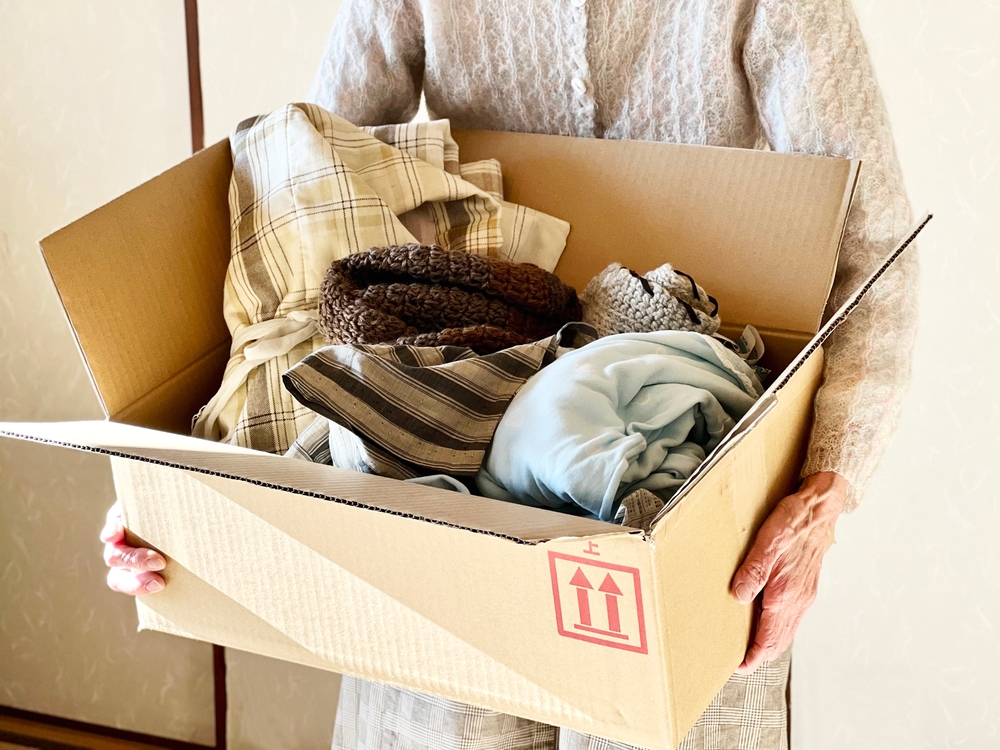
It is tempting to hang on to clothes you used to love, even if you have not worn them in years. You may tell yourself you will wear them again “just in case” you lose or gain weight, or if a special occasion comes up. But clothing that no longer fits, feels uncomfortable, or is out of style rarely gets a second chance. Keeping these items clogs your wardrobe and makes it harder to find outfits you actually enjoy. A good rule of thumb is to let go of anything you have not worn in the past 12 months. Donate gently used clothes to local shelters or community centers. Your closet should be filled with clothes that serve you now, not items you hope to use someday.
Duplicate Kitchen Tools
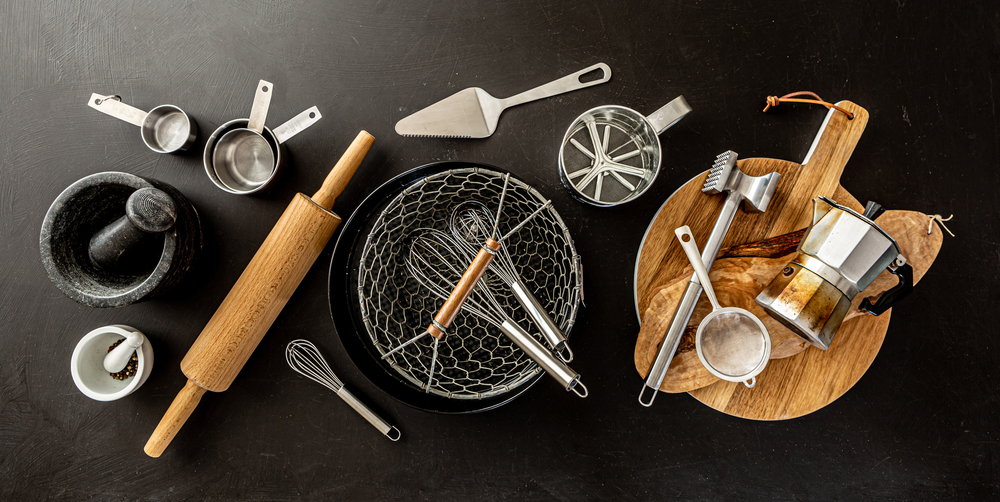
Extra kitchen tools seem harmless until they start overflowing your drawers. Maybe you keep multiple spatulas, ladles, or bottle openers “just in case” one breaks or you need extras for guests. But most households only need one or two of each type of tool. The rest sit unused, taking up valuable space. Evaluate what you actually use when cooking. Keep your favorites and donate or recycle the rest. A streamlined kitchen is easier to clean and much more enjoyable to use. The “just in case” mindset does not justify keeping five garlic presses you never touch.
Free Samples and Hotel Toiletries
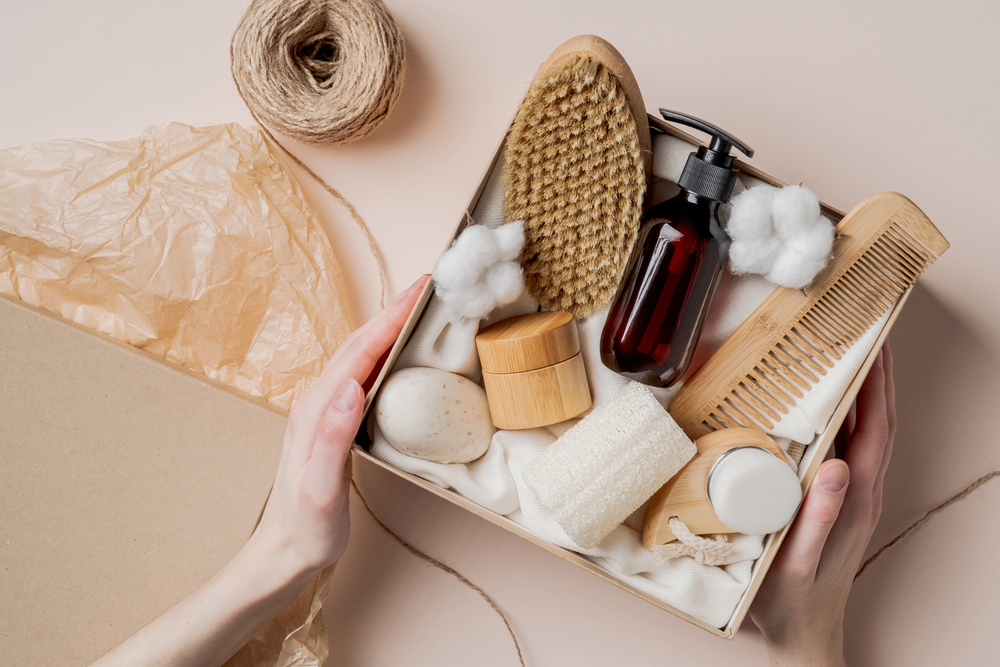
Tiny hotel shampoo bottles, lotion samples, and travel-size toothpastes have a way of piling up in bathrooms. These items are often saved “just in case” you need them for a trip or an overnight guest. However, they tend to go unused for years and expire in storage. When you finally need travel supplies, you likely grab newer, full-size versions instead. Take inventory of what you have. Keep one or two kits ready to go and toss the rest. Use what you can immediately, then resist the urge to collect more in the future. Your bathroom will feel less cluttered and more efficient.
Old Paperwork and Manuals
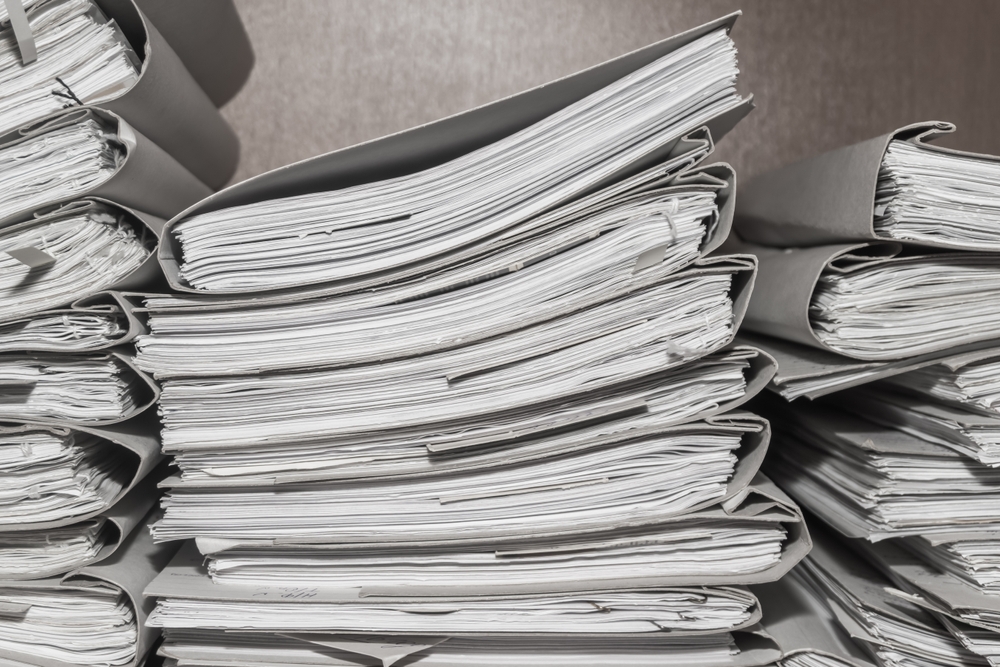
Stacks of old documents, receipts, and instruction manuals are common in many homes. You might be keeping them “just in case” you need to reference an old bill or figure out how to program your microwave. In reality, most old paperwork is never used again, and appliance manuals are usually available online. Shred documents with personal information that are outdated, such as expired insurance policies or closed bank account statements. Sort through your paper piles and keep only what is truly essential. Use file folders or digital storage systems to stay organized going forward.
Craft Supplies You Never Use
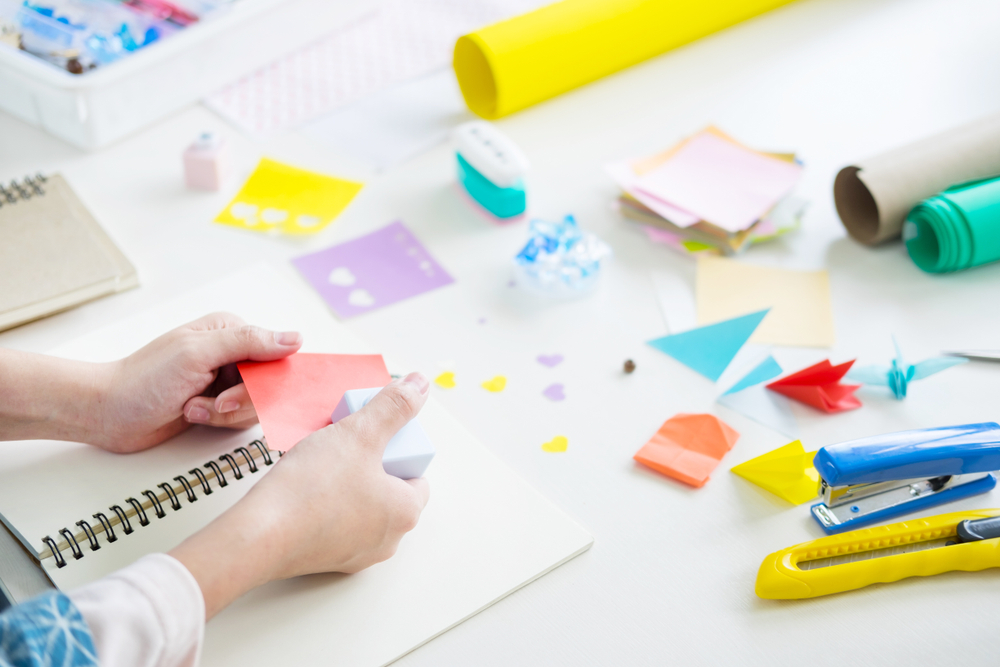
Creative people tend to collect lots of materials for hobbies they enjoy—or think they will enjoy. You might have jars of buttons, stacks of colored paper, or bins of fabric scraps, all saved “just in case” you get inspired one day. But if these supplies have sat untouched for years, they are just taking up space. Unused craft supplies can make it harder to work on the projects you actually care about. They can also become dusty, warped, or unusable over time. Donate these materials to schools, community art programs, or neighbors who enjoy crafting. You can always buy new supplies if you decide to return to a hobby later.
Broken Items You Plan to Fix
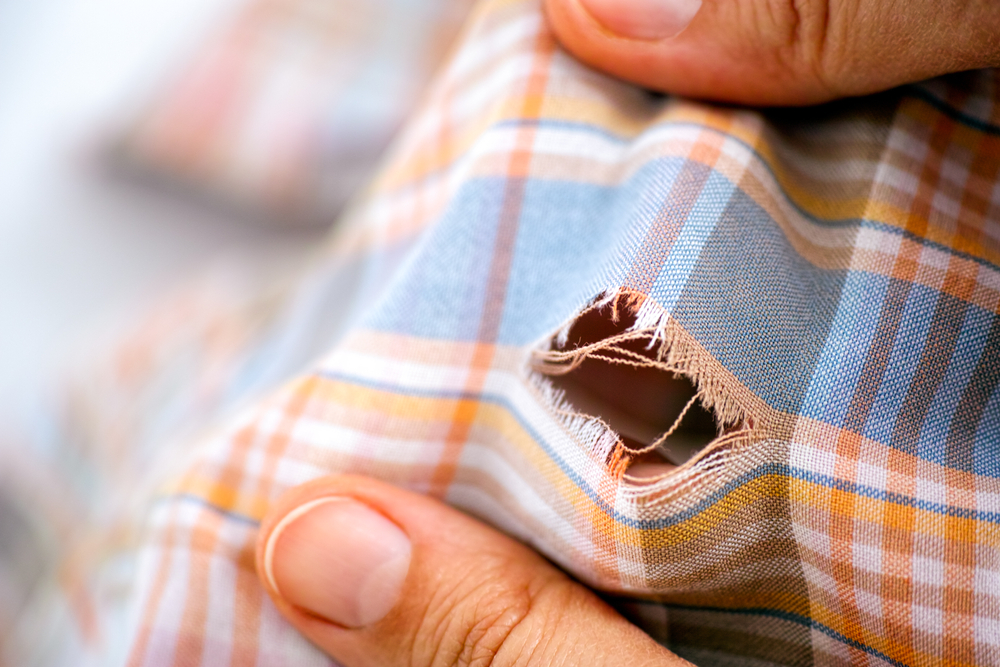
It is easy to save broken items with the hope of fixing them one day. That chair with a cracked leg or lamp with a missing part might seem like a fun repair project. But if months pass and you have not made any progress, the item becomes clutter. Saving broken things “just in case” you find the time or skill to fix them is a mental burden. It creates a to-do list that you may never get around to completing. If the item has sentimental value or is high-quality, consider hiring someone to repair it promptly. Otherwise, donate the salvageable parts or dispose of it responsibly.
Extra Bedding and Towels
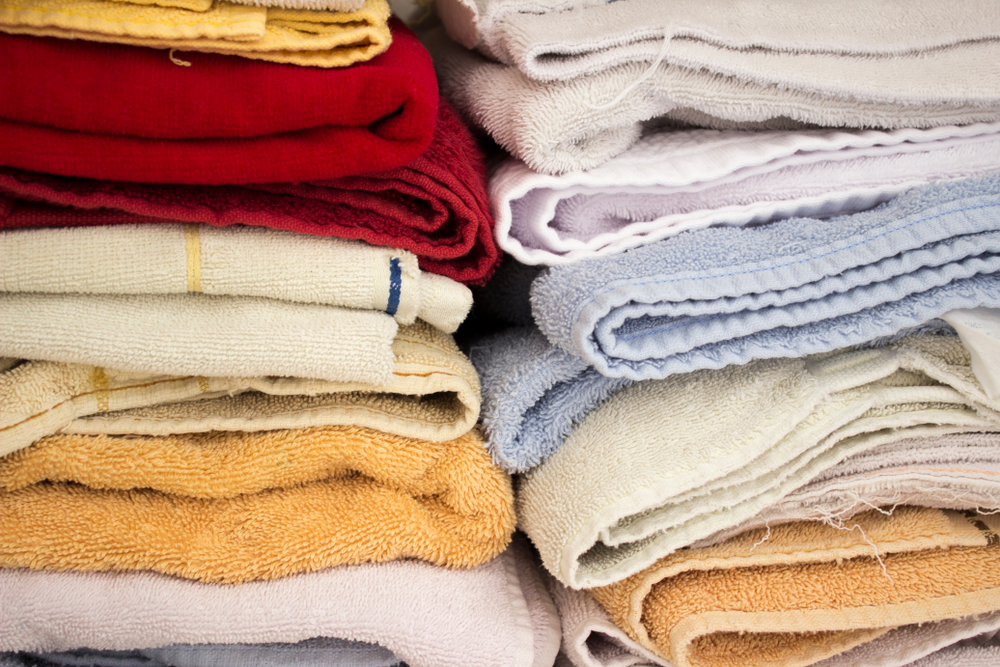
Linen closets often become overcrowded with old sheets, pillowcases, and towels. You might save them “just in case” you have a lot of guests or need backups during laundry day. However, most households can manage with two sets of bedding per bed and a few extra towels. Anything beyond that creates clutter. Old linens also lose absorbency and softness over time, making them less pleasant to use. Donate the extras to animal shelters or organizations that accept bedding for donation. Keeping only what you use regularly makes your closet more breathable and your laundry routine simpler.
Obsolete Hobby Gear
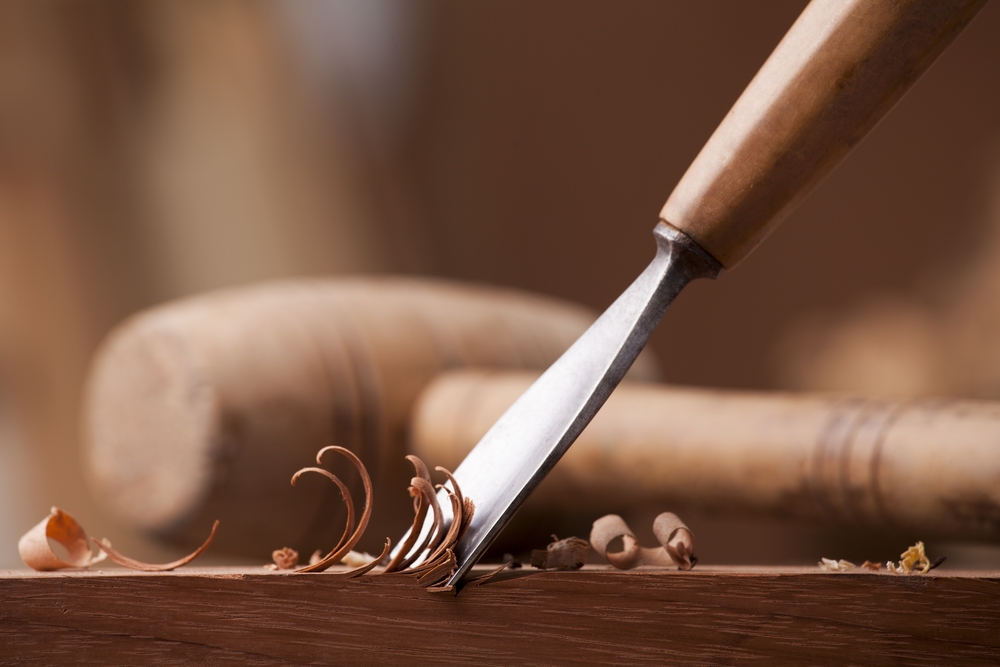
Sometimes we get excited about a new hobby, buy all the gear, and then lose interest. That snowboard, guitar, or set of painting supplies you have not used in five years might still be sitting in your garage. You may tell yourself you are holding onto it “just in case” you decide to pick it back up. But if your lifestyle has changed and your interests have shifted, that gear is likely wasting space. Let someone else enjoy it. You can sell, donate, or trade these items. Freeing up the space could open new opportunities for hobbies you are more passionate about now.
The Cost of Clinging to “Just in Case”
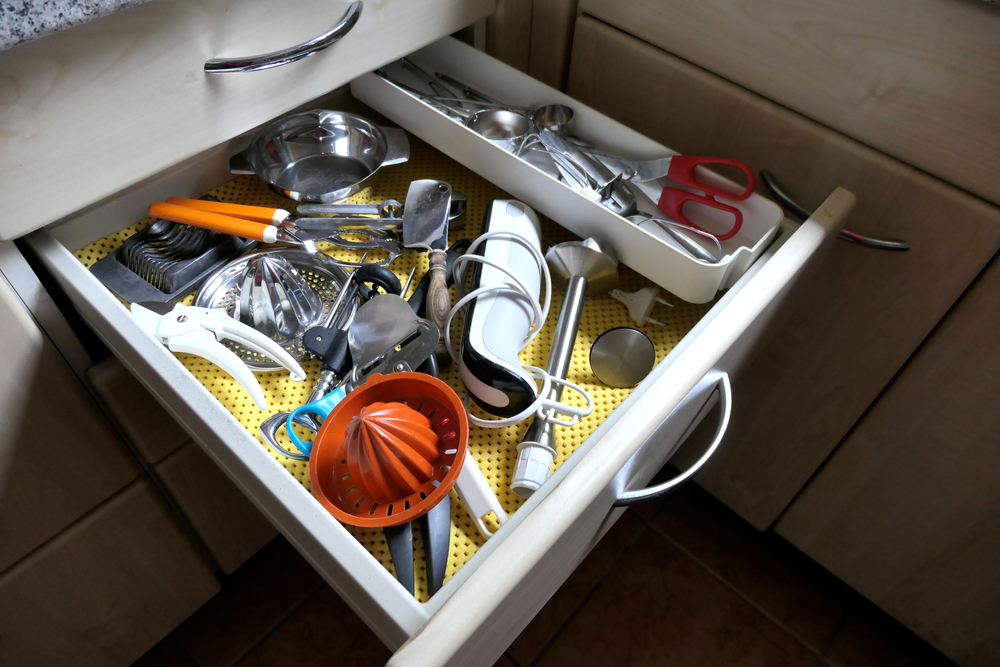
Keeping things “just in case” may seem like preparation, but it often reflects indecision and fear of lack. Over time, this mindset contributes to clutter, disorganization, and frustration. When you hold onto items out of fear, you carry mental baggage along with physical clutter. Shifting your mindset can be powerful. If you trust that your needs will be met when the time comes, you can let go of objects that no longer serve you.
Simplifying Your Space Creates Peace of Mind
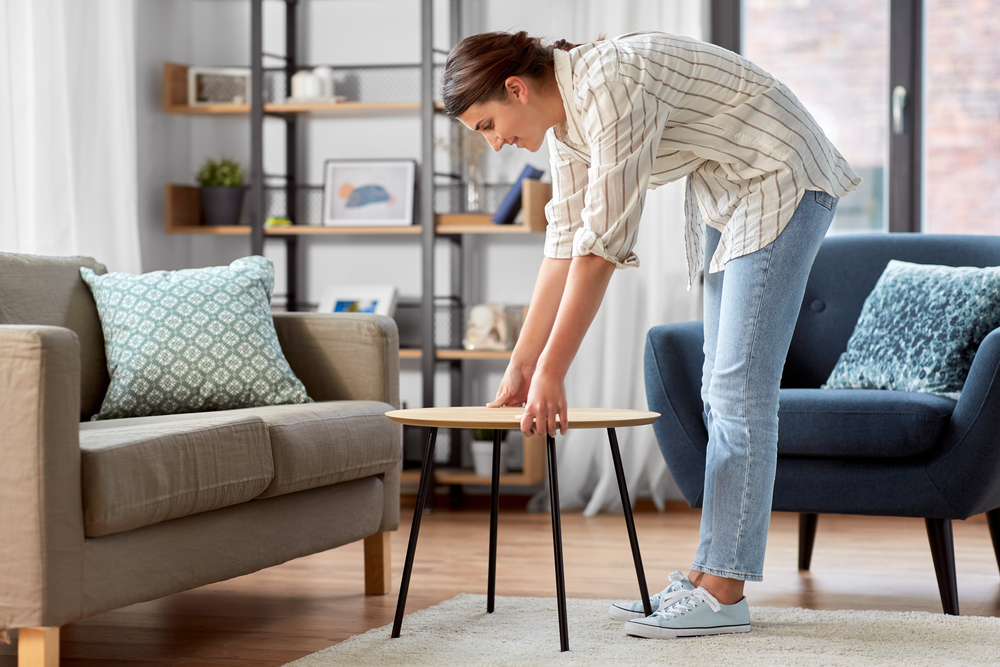
Removing “just in case” items allows your home to breathe. You create space for what matters and eliminate distractions. A cleaner environment helps reduce decision fatigue, which improves focus and emotional clarity. You also save time by no longer searching through piles of things you do not need. Decluttering builds momentum, and small wins lead to lasting changes. Letting go can actually feel good once you realize how little you miss what you removed.
How to Get Started Without Feeling Overwhelmed
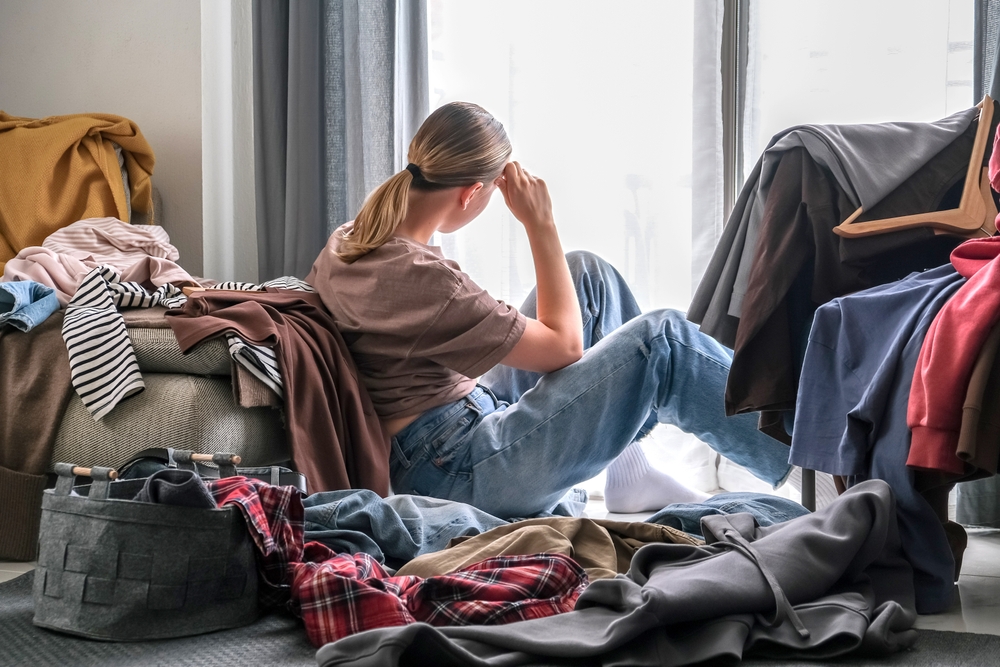
Start small. Pick one area of your home, like a junk drawer or a shelf in the closet. Sort items into keep, donate, and discard piles. Ask yourself honestly if you have used the item in the last year. If not, chances are you will not use it next year either. Pay attention to how each cleared space makes you feel. Use that energy to keep going. Avoid letting guilt or nostalgia guide your decisions. Let utility and joy lead the way instead.
Read More: Cleaning Combos You Should Never Mix
Freedom Lies in Letting Go
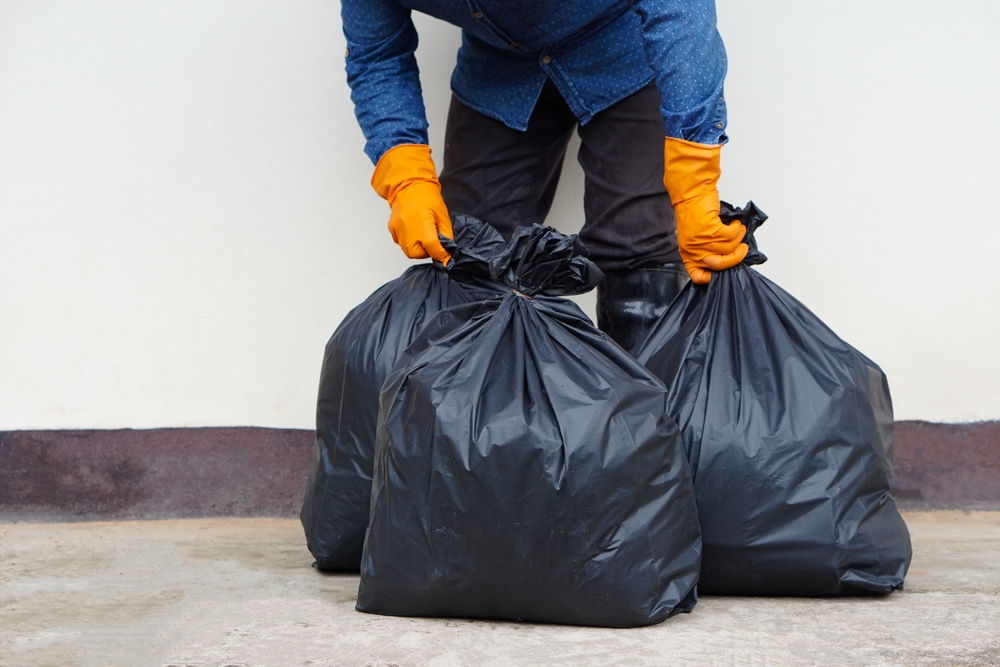
The next time you find yourself hesitating over an item, ask, “Am I really going to use this, or am I keeping it just in case?” If the answer is the latter, consider setting it free. Most of what we save for future possibilities ends up sitting untouched for years. You deserve a home that supports your life today, not one weighed down by clutter from yesterday. Let go of the excess, trust in your ability to handle the future, and create space for what truly matters.
Disclaimer: This article was created with AI assistance and edited by a human for accuracy and clarity.
